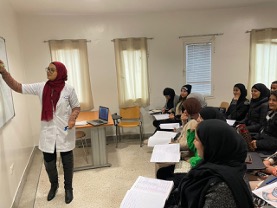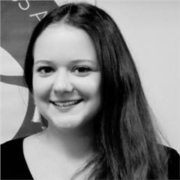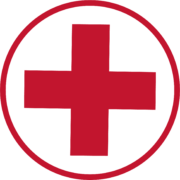LOCATION
LOCAL PARTNERS
IECD Morocco / Heure Joyeuse Association / CRDT / MP2S
“After obtaining my certificate in this course, I decided to continue my career by training as a care assistant. It was an important decision for me, as I wanted to develop my skills and do more to help people in need.
I’m proud to be part of this dedicated community of care professionals”, Meryem, 29, winner of FAPAR’s first class and currently an assistant trainer at l’Heure joyeuse.
Contact: Aymeline Garnier
Healthcare Programme Coordinator
E-mail: aymeline.garnier@iecd.org
Morocco: Assistance for people with reduced autonomy training (FAPAR)
The country faces significant challenges with its young and aging populations. Currently, 28.5% of young people aged 15 to 24 are neither in education, employment, nor training (NEET), with women comprising 76.5% of this group. This high rate reflects the pressing need for initiatives to integrate young people into the workforce and educational systems.
Simultaneously, the population is aging, with those over 65 expected to grow from 6% in 2014 to 17% by 2050. This demographic shift highlights the critical shortage of qualified professionals to assist elderly, sick, or disabled individuals with their daily needs, underscoring an urgent need to strengthen training and employment in the care sector.
1 National Observatory for Human Development Morocco 2021
2 High Commission for Planning Morocco 2018
The vision of the project
Offer employment opportunities to young people in an auspicious sector in Morocco, by responding to a need of vulnerable people deprived of quality medico-social support.
The pedagogical keys
A 9-month training course to prepare professionals capable of helping the elderly and/or people with disabilities in daily life activities. The training offers 3 months of capacity-building followed by 6 months of work-study training in different structures, with the different public (center for people with disabilities, private clinics, chemotherapy center, retirement homes, orphanages …).




